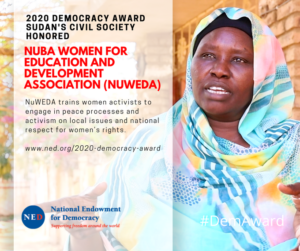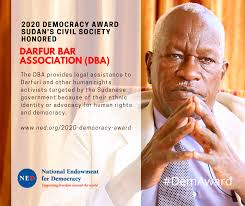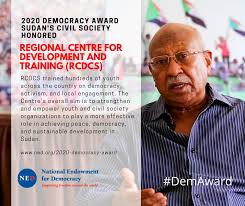Efforts to bring stability to Sudan’s conflict-ridden Darfur region have failed to reassure residents fearful of rising violence which has cast a shadow over peace negotiations, Reuters reports (HT:FDD).
The new bout of deadly violence in Sudan’s ravaged Darfur region is an attempt to sabotage the country’s fragile transition since last year’s ouster of strongman President Omar al-Bashir, analysts told AFP.
 “The attack by 500 armed men in pick-up trucks on a large village in the state of West Darfur requires real organisation,” argued Marc Lavergne, a Sudan expert at the French National Center for Scientific Research. “It’s a message. The objective is to destabilise the country and show others abroad that the administration in Khartoum is only in control of the capital.”
“The attack by 500 armed men in pick-up trucks on a large village in the state of West Darfur requires real organisation,” argued Marc Lavergne, a Sudan expert at the French National Center for Scientific Research. “It’s a message. The objective is to destabilise the country and show others abroad that the administration in Khartoum is only in control of the capital.”
The ouster of Sudan’s longtime ruler last year stoked hopes for peace in brutalized Darfur. But violence has surged amid fresh accusations against Sudan’s security forces. While Sudan’s detested dictator has been vanquished, his legacy has proved harder to dismantle, and the transition to democracy has stalled perilously in key areas, The Times adds:
A transitional legislature, announced last year, has yet to be formed. The youthful democracy campaigners who helped to oust Mr. al-Bashir have split into factions. A campaign to get the United States to lift its designation of Sudan as a state sponsor of terrorism,… has run into sand. And the country’s transitional government, which is supposed to pave the way for a general election in 2022, is troubled by tensions between military and civilian leaders, Western diplomats say, as well as periodic rumors of a military coup.
 “When you see attacks like this one, and it’s just another Tuesday in Darfur, you realize that not much has changed since the revolution,” said Cameron Hudson, a former State department official and Sudan expert at the Atlantic Council’s Africa Center, a research group, speaking of a recent attack in Fata Bornu.
“When you see attacks like this one, and it’s just another Tuesday in Darfur, you realize that not much has changed since the revolution,” said Cameron Hudson, a former State department official and Sudan expert at the Atlantic Council’s Africa Center, a research group, speaking of a recent attack in Fata Bornu.
In response to the street’s demands, and after a week of protests, the Sudanese Cabinet issued a statement announcing its desire to make a cabinet reshuffle and demanded six ministers to resign, notes analyst Areig Elhag. It is expected that these measures will temporarily placate the Sudanese street until the new government proves its efficiency and its compatibility with the demands of the revolution, she writes for The Washington Institute:
 It is also in the interest of Sudan’s politicians in the coming period to avoid being drawn into scenarios that could restore dictatorship in Sudan. Political exclusion does not operate in the interest of Sudan and the best course of action is to adapt an inclusive policy towards all balanced political forces with agendas consistent with the people’s choices.
It is also in the interest of Sudan’s politicians in the coming period to avoid being drawn into scenarios that could restore dictatorship in Sudan. Political exclusion does not operate in the interest of Sudan and the best course of action is to adapt an inclusive policy towards all balanced political forces with agendas consistent with the people’s choices.
Civil society groups critical to Sudan’s revolution – the Regional Centre for Development and Training (RCDCS), the Nuba Women for Education and Development Association (NuWEDA), and the Darfur Bar Association (DBA) – were recently honored with the 2020 National Endowment for Democracy (NED) award (above), in recognition of “working tirelessly to strengthen civil society in Sudan.”
The virtual event included tributes from NED Board members Sen. Ben Sasse (R-NE), Rep. Karen Bass (D-CA), and Rep. Elise Stefanik (R-NY), as well as messages from Sen. Chris Coons (D-CT), Rep. Eliott Engel (D-NY), Michael McCaul (R-TX), and Rep. Dan Kildee (D-MI). Deputy Secretary of State for East Africa and the Sudans Amb. Makila James congratulated the honorees, as did Sudan’s acting Foreign Minister Omer Ismail, NED Board member Amb. Linda Thomas-Greenfield, and Sudan’s Minister of Justice Nasredeen Abdulbari. Read more about the event.







